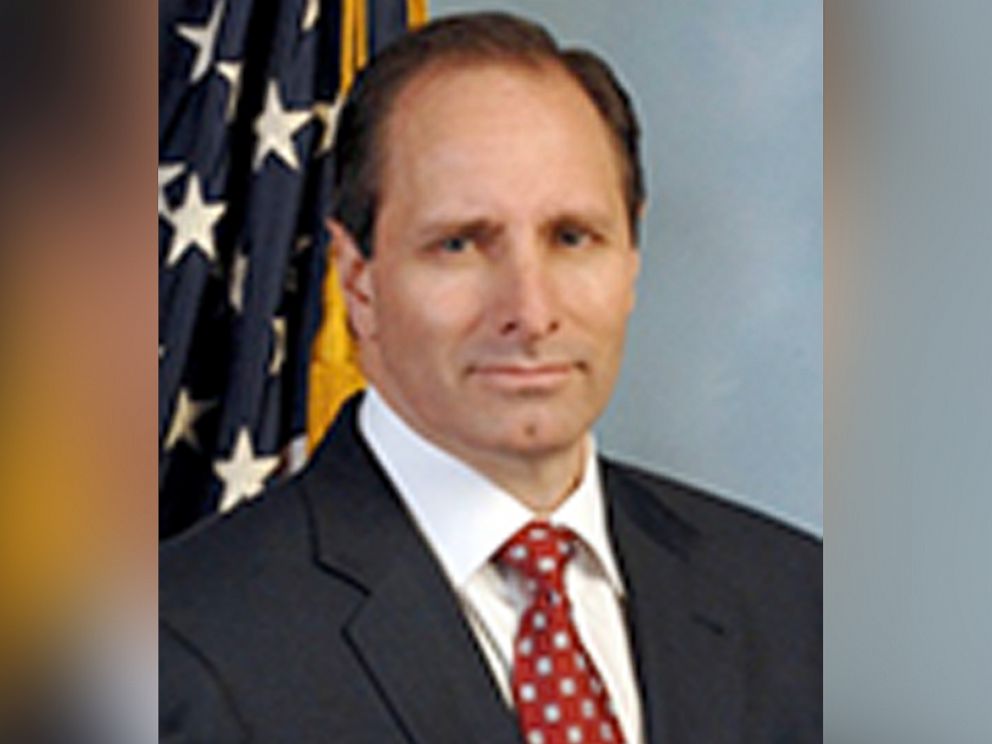FBI: 'We Are Losing the Battle' to Stop ISIS Radicalization Online
They admit that the terror group is good at something.
— -- The FBI’s top counterterrorism official offered a blunt assessment today of U.S. efforts to stop ISIS from spreading its merciless message online: “We are losing the battle.”
The terrorist group wreaking havoc in Syria and Iraq as it blasts videos of beheadings to the world “has proven dangerously competent like no other group before it at employing [online] tools for its nefarious strategy,” the head of the FBI’s counterterrorism division, Assistant Director Michael Steinbach, told lawmakers today.
He said the FBI and other U.S. agencies have implemented “an effective counter narrative” online, but “the sheer volume” of ISIS messaging online, particularly through social media, “eclipses our effort.”
In fact, while U.S. authorities have been warning that thousands of Westerners recruited to fight with ISIS overseas could pose a threat to the U.S. homeland, that threat “is a small problem” compared with the group’s ability to reach into the United States and radicalize someone without anyone else knowing.
Through its online campaign, ISIS is able to target radicalized Americans who are “frustrated” by an inability to leave the United States or just can’t afford it, according to Steinbach.
“So what they’re doing is … saying, 'Hey, if you can’t come to Syria, do something in the U.S. or Western countries,’" Steinbach added.
Steinbach cited Wednesday's arrest of three New Yorkers as “a good example” of the threat the FBI is seeing “more and more.” Two of those arrested allegedly discussed ways they could wage jihad inside the U.S. homeland, from assassinating President Obama to bombing Coney Island.
Nineteen-year-old Akhror Saidakhmetov, a Kazakhstan citizen living in Brooklyn, N.Y., was arrested at John F. Kennedy International Airport as he was allegedly trying to leave for Syria. 24-year-old Abdurasul Hasanovich Juraboev, an Uzbekistan citizen also living in Brooklyn, was arrested at his apartment.
In August, Juraboev allegedly posed a question on an Uzbek-language site tied to ISIS: “I am in USA now. ... But is it possible to commit ourselves as dedicated martyrs anyway while here?”
In the same post, Juraboev suggested he could “shoot Obama and then get shot ourselves … That will strike fear in the hearts of infidels,” according to the FBI.
Over the following months, the FBI tracked their communications and sent a confidential informant to engage with them, recording many of their alleged conversations about traveling to Syria and launching attacks in the U.S. homeland.
In one November 2014 discussion, Saidakhmetov allegedly suggested he join the U.S. military so he could pass military information to ISIS – and if his plan ever fell apart, he could open fire on American soldiers, according charging documents.
A third Brooklyn man, 30-year-old Abror Habivov, was arrested in Florida, accused of funding some of the pair’s travel and operating “a domestic support network” for travel to Syria.

All three have been charged with conspiring to provide material support to a terrorist group and each faces 15 years in prison if convicted.
Today, Steinbach said the type of danger they posed “is a blending of homegrown violent extremism with the foreign fighter ideology,” calling it “today's latest adaption of the threat."
“The West is facing the most complex and severe terrorist threat we have seen certainly since 9/11,” said John Cohen, the former counterterrorism adviser at the Department of Homeland Security who’s now an ABC News consultant. “It may even be more [severe] than the ones we faced on 9/11.”
Part of the concern, Cohen said, is that traditional counterterrorism efforts -- which rely heavily on the likes of the CIA, National Security Agency and Defense Department -- “were never intended to deal with an individual becoming radicalized while sitting in the basement of his home in Minneapolis.”
In fact, over the past year, the FBI has arrested several young, Somali men from Minneapolis for allegedly trying to join ISIS in Syria. Many others from the Twin Cities actually made it there, though not all of them are still alive.
Countering that type of radicalization, Cohen said, requires local police working hand-in-hand with local faith organizations, mental health professionals, and others in community there on the frontline.
At the hearing today, a top law enforcement official from Minneapolis agreed, saying it all comes down to trust and an enduring, “respectful partnership” between everyone involved in a community.
But Hennepin County sheriff Richard Stanek said it’s important not to mix anti-radicalization efforts with community engagement.
“You cannot, shall not mix the two,” Stanek insisted. “If members of the diaspora community think that your community engagement techniques are nothing more than a front for intelligence gathering to counter violent extremism, that is a problem.”
Stanek said his department’s efforts with communities in the Twin Cities have paid dividends in recent years. He noted Somali leaders in Minneapolis “renounced” a video posted over the weekend by the Somalia-based terrorist group al-Shabab, calling for attacks at malls in the West.
“That would not have happened several years ago” because the Somali community did not “know how to respond” and did not feel empowered to do so, according to Stanek.
At today’s hearing and after yesterday’s arrests, law enforcement officials tried to emphasize that radicalized individuals do not represent Islam or any other religion.
“[They] violated the true tenants of their faith in pursuit of their radical, violent agenda,” said the head of the FBI’s field office in New York, Diego Rodriguez, about the three men arrested yesterday for allegedly trying to aid ISIS.
In a statement, he urged community members to flag “those who could be [similarly] radicalized” because “we cannot do this alone."



